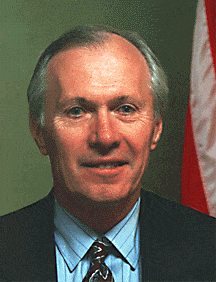On March 20th, 1996, American Petroleum Institute’s (API) Vice President William O’Keefe followed up with the President’s Assistant for Economic Policy after an earlier meeting. Originally uncovered by The Center for Climate Integrity, O’Keefe’s “Actions to Address Greenhouse Gas Emissions” reflects the precarious position API was in at the time: stuck between acknowledging climate change and maintaining the status quo for fossil fuel consumption.
Outlining a number of policy and economic recommendations, O’Keefe “recognizes the legitimate concerns about the potential long-term effects of increasing greenhouse gas emissions on the Earth’s climate system.” Despite this admission, O’Keefe stresses the importance of “flexible voluntary programs,” reductions in the “corporate tax rate,” and an “investment climate” to spur exports of “energy-efficient technologies.”
In the face of perceived “catastrophic consequences,” O’Keefe writes, near-term emission reductions are “inconsistent with the current state of climate science.” Relying on economic analysis only, O’Keefe deems near-term goals unfeasible as “the only way to achieve such reductions in a 10-15 year timeframe is by a large energy tax.” Diminishing the existing scientific consensus, O’Keefe focuses on “funding of policy-relevant research on reducing major uncertainties about the climate system and on improving the accuracy of climate models, particularly with respect to possible regional impacts, and the role of oceans, clouds and water vapor” (emphasis added). Lastly, when detailing ideas to “stabilize the policymaking and investment environment,” O’Keefe suggests “corporations to include climate change considerations in their long-range business plans.”


